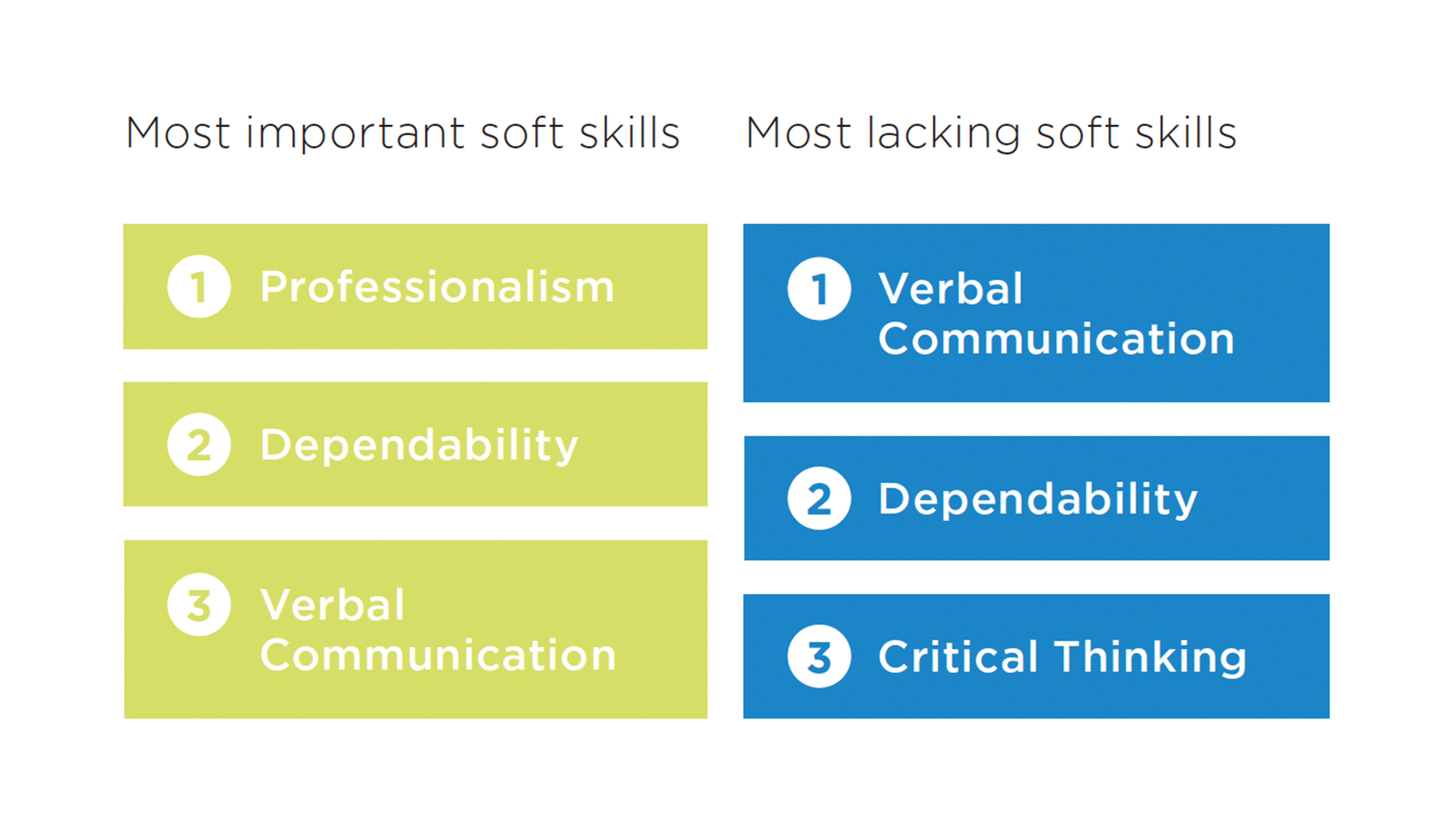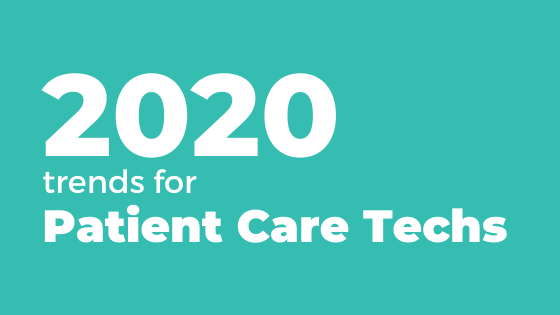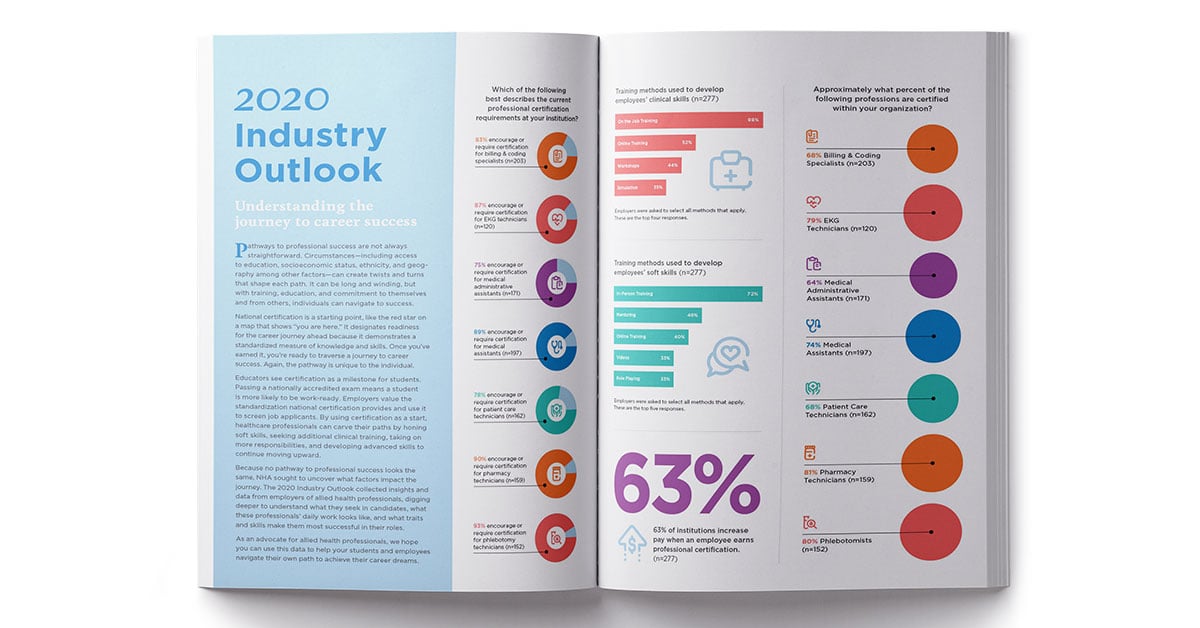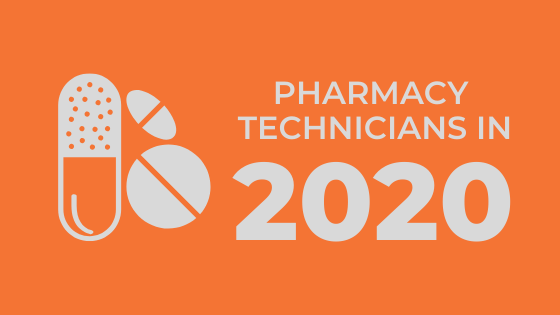Phlebotomy technicians must have foundational knowledge and skills, sometimes called hard skills, to draw blood and perform related tasks. As an important member of the care team, it's also essential that professionals in this role exhibit strong soft skills. In our recent survey of employers in the 2020 Industry Outlook, the most important soft skills for phlebotomy technicians include professionalism, dependability, and verbal communication.
National Healthcareer Association
Recent Posts
As healthcare evolves, we're always working to gain insights to help future and current frontline healthcare workers like EKG technicians access a better future. We recently surveyed hundreds of healthcare employers in search of information to help you on your path to success as an aspiring or current EKG technician. We shared a summary of our findings in the 2020 Industry Outlook, now available for download as a PDF. Download your copy today from this year's edition of accessTM: an allied health industry journal.
Why is a healthy lifestyle so important for older adults?
Today, many people are living longer lives, but often with chronic diseases that can truly impact the quality of those extra years. Cardiovascular disease, diabetes, high blood pressure (hypertension), arthritis, and osteoporosis are among the most common health concerns for seniors but getting a diagnosis can provided much-needed motivation to take action.
Working in the frontlines of healthcare, patient care technicians (CPCT/A) assist nurses and other medical professionals. They keep close tabs on patients, and help them with basic needs, perform safety checks, check their vitals, and more.
Medical assistants are critical to healthcare teams. The ever-evolving health care landscape has expanded the role of this profession, which is why training and certification is so important.
So, what's happening right now? We surveyed 157 medical assistant employers to find out. Here are three key stats we discovered. (For more, download the 2021 Industry Outlook from the latest edition of accessTM.)
Continuing Education (CE) can feel like exercise. You feel better once it's done, but it's difficult to take the initiative to start.
We get it. That's why our CE credits, which are required to maintain certification status and required in certain states to maintain employment, are:
- Diverse to match your needs/interests
- Developed by experts who are in the field and understand what it takes to succeed
- Are succinct yet impactful, so you can get the most benefit from your time investment
At NHA, we always strive to provide information to support frontline healthcare workers like billing & coding specialists on their path to success, which is why we recently surveyed hundreds of healthcare employers to discover insights to help lead us into 2020 and beyond. We shared a summary of our findings in the 2020 Industry Outlook, available as a PDF download (below) in this year's edition of accessTM: an allied health industry journal.
It's a time of opportunity and advancement for the pharmacy technician. The industry is changing, and this role is being elevated in new and exciting ways. Want to get on the path to professional success as a current or aspiring pharmacy technician? We gathered insights and data from 159 pharmacy employers to uncover factors that can impact your journey. Here are three key findings to guide you through 2020 and beyond.
EKG rhythms provide important data for the diagnosis of heart conditions.
Certified EKG Technicians (CETs) administer EKGs during physical exams, when cardiovascular problems are suspected, or in preparation for surgery.
The word electrocardiograph is derived from the Greek electro, meaning related to electrical activity; kardia, meaning heart; and graph, meaning "to write".
This technology is used every day, but it took a lot of scientists, inventors, and even frogs to get to where EKGs are today.
From frogs to buckets of salt water, here are a few facts to highlight the weird history of EKGs.
One of our priorities at NHA is to provide information and resources to support frontline healthcare workers like medical administrative assistants on their career journey. We recently surveyed 171 healthcare employers to gain insights and trends related to the role of medical administrative assistant to carry us into 2020 and beyond.











